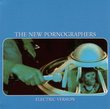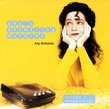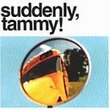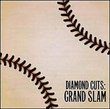| All Artists: Frederic Chopin, Dinu Lipatti Title: Chopin: Waltzes Nos. 1-14 Members Wishing: 0 Total Copies: 0 Label: EMI Classics Original Release Date: 1/1/1950 Re-Release Date: 1/12/1999 Album Type: Original recording remastered Genres: Dance & Electronic, Classical Styles: Chamber Music, Historical Periods, Classical (c.1770-1830), Modern, 20th, & 21st Century Number of Discs: 1 SwapaCD Credits: 1 UPCs: 724356695627, 724356695658 |
Search - Frederic Chopin, Dinu Lipatti :: Chopin: Waltzes Nos. 1-14
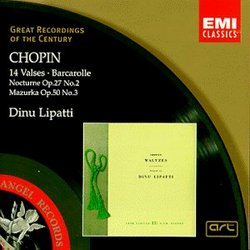 | Frederic Chopin, Dinu Lipatti Chopin: Waltzes Nos. 1-14 Genres: Dance & Electronic, Classical
Still regarded by many as the greatest set of Chopin waltzes ever recorded, Dinu Lipatti's performances continue to astonish. He strokes the keyboard with such delicacy, finesse, and, where required, unobtrusive strength t... more » |
Larger Image |
CD DetailsSynopsis
Amazon.com Still regarded by many as the greatest set of Chopin waltzes ever recorded, Dinu Lipatti's performances continue to astonish. He strokes the keyboard with such delicacy, finesse, and, where required, unobtrusive strength that the music simply seems to play itself. All of Chopin's music is, of course, exceptionally well written for the keyboard, but the sense of rhythmic lift, the inevitability--these are the hallmarks of a great artist. It's terrible to think that when he made this stunning recording, Lipatti was already in pain and dying of leukemia; there's certainly no hint of it in his playing. EMI's transfer has been accomplished with considerable skill, and we can only be grateful that Lipatti was with us long enough to finish this affecting tribute to all that's most beautiful in life. --David Hurwitz Similarly Requested CDs
|
CD ReviewsLuminous Boris Bangemann | Singapore | 12/29/2003 (5 out of 5 stars) "Yes, luminous is the word that describes Lipatti's recording of the Fourteen Waltzes best: "bright or shining, especially in the dark."I bought this CD fourteen years ago, and since then I have not found an interpretation that even comes close to Lipatti's. His recording of Chopin's waltzes is worlds apart from those of all other pianists. No one else captured the terrifying and exhilarating coexistence of darkness and light in these ostensibly innocent pieces as convincingly as Lipatti.Waltzes are dances of joy, very easy to learn and perform. Once very popular among all classes, their emotional range covered everything from the exuberant to the sentimental. Today, they have a reputation for either rustic fun or plain kitsch.What Lipatti found in Chopin's waltzes goes far beyond the conventional. Played by him, these dances are testament to the pleasure to live in the face of suffering. Lipatti is the one pianist who can genuinely express both the joy of living and the awareness of mortality in as simple a piece of music as a waltz.Playful, wise, sublime. Luminous. Listen!" Incomparable 04/03/2000 (5 out of 5 stars) "The playing is immaculate: rythm, phrasing, transitioning, rubato, technique. Lipatti reveals the depth and melancholy of Chopin's waltzes, rather than their lightness (e.g. #14 in E minor, posthumous opus). Detail never comes in the way of seriousness here; try #3 in A minor, op.34 #2, or #7 in C sharp minor op.64 #2, to see how simplicity can amount to greatness. (This is not to say that Lipatti ignored detail; he was the quintessential perfectionist.) Note that he left two recordings of the waltzes. This is the studio one, which I find more satisfying. During his later recording, live at Besancon, Lipatti had to be carried off stage before the end of the program, so close he was to death." Exceptional bruce horner | 09/07/2000 (5 out of 5 stars) "I never thought that a set of Chopin's Waltzes could ever compete with the Rubinstein for me, but this one by Dinu Lipatti is exceptional. This was a man who truly loved this music and had the talent to show it. The sound is acceptable given the age of the recording, and the Barcarolle, Nocturne, and Mazurka are also very fine. I don't know why the Waltzes are presented out of order, but you can always program the CD player to play them in numbered sequence. This is music that you don't have to be in the mood for----hear it and you are in IT'S mood."
|

 Track Listings (17) - Disc #1
Track Listings (17) - Disc #1